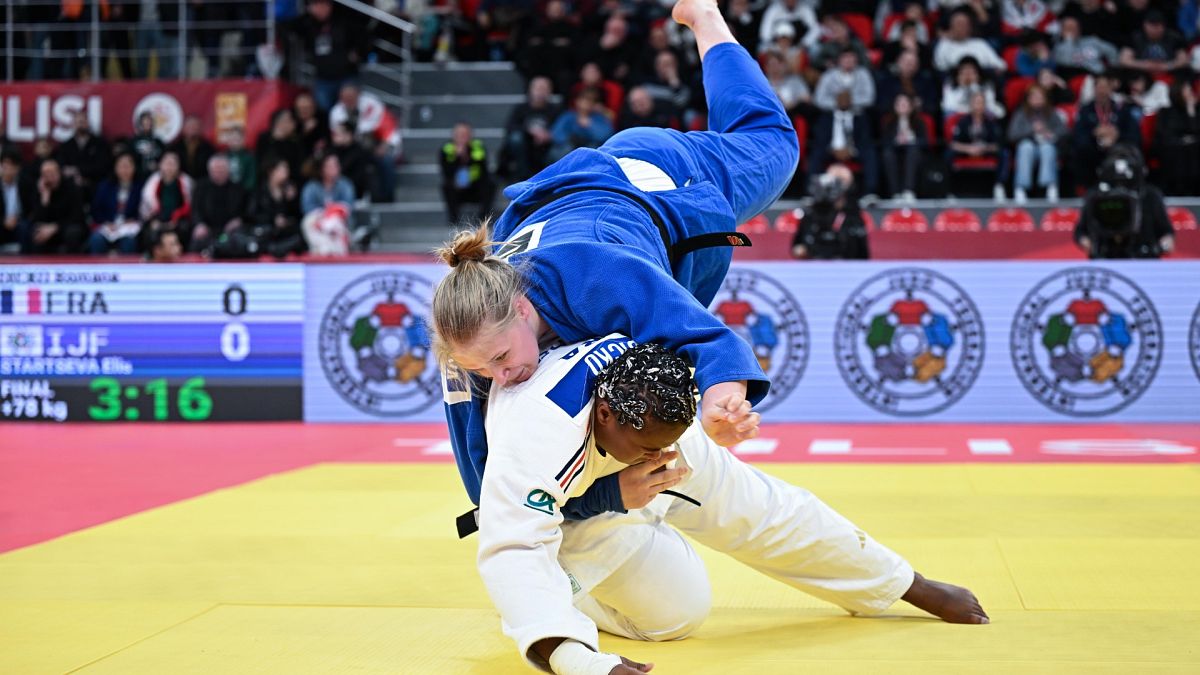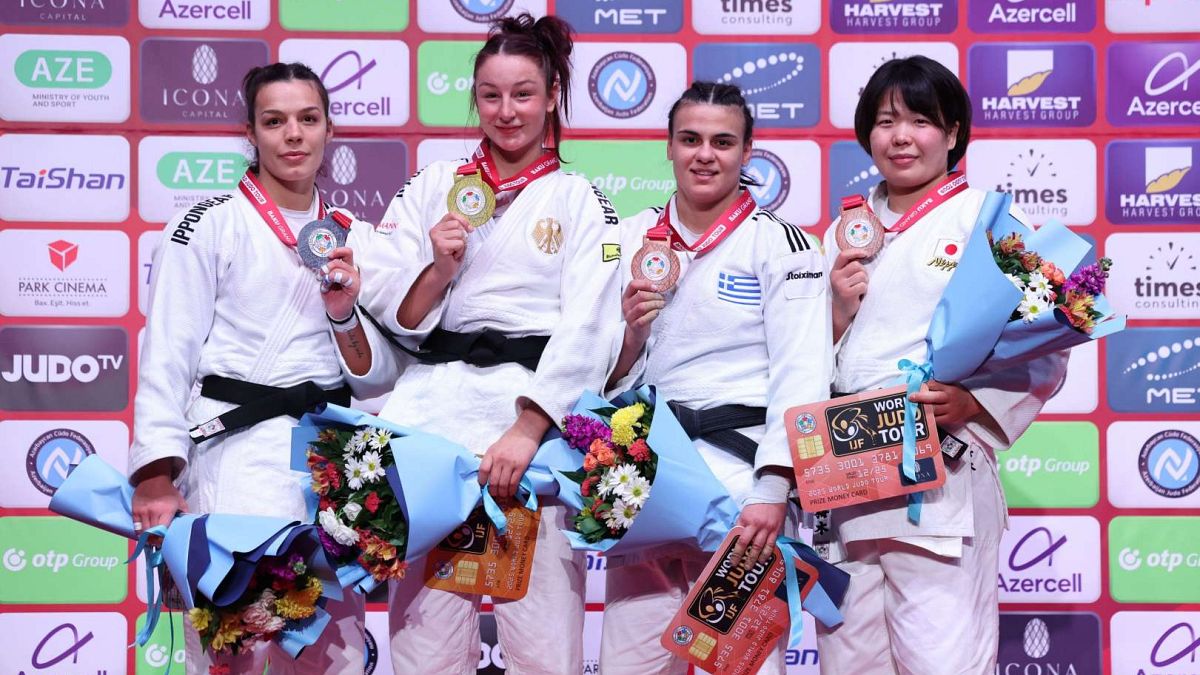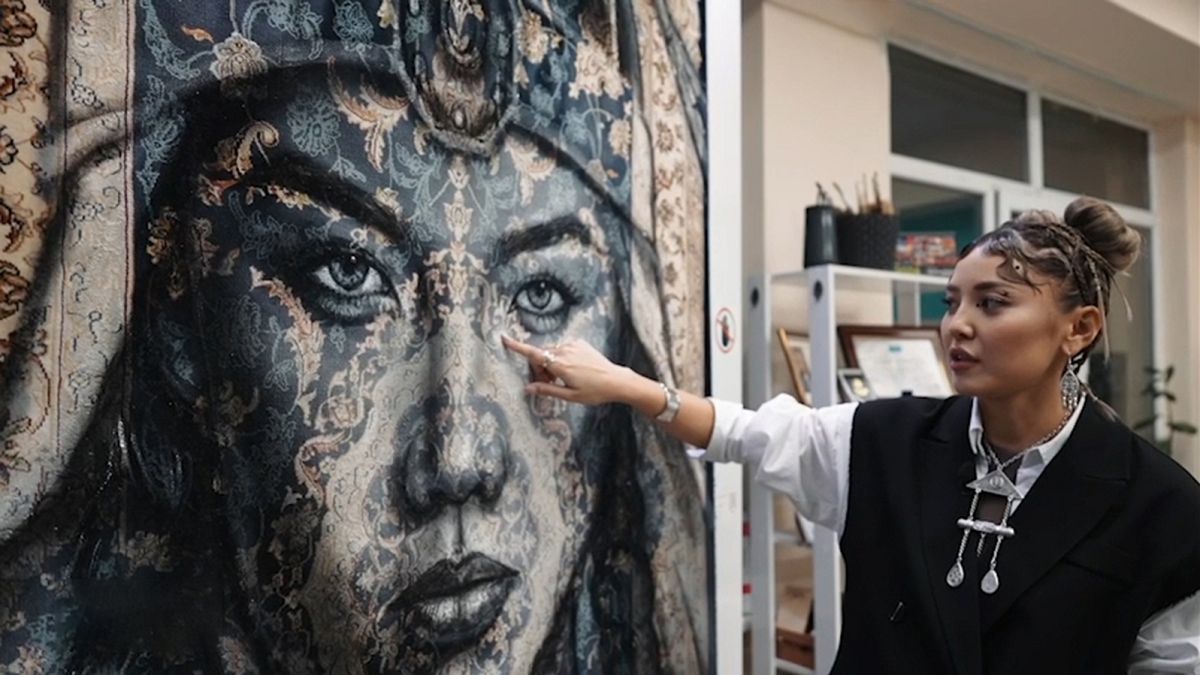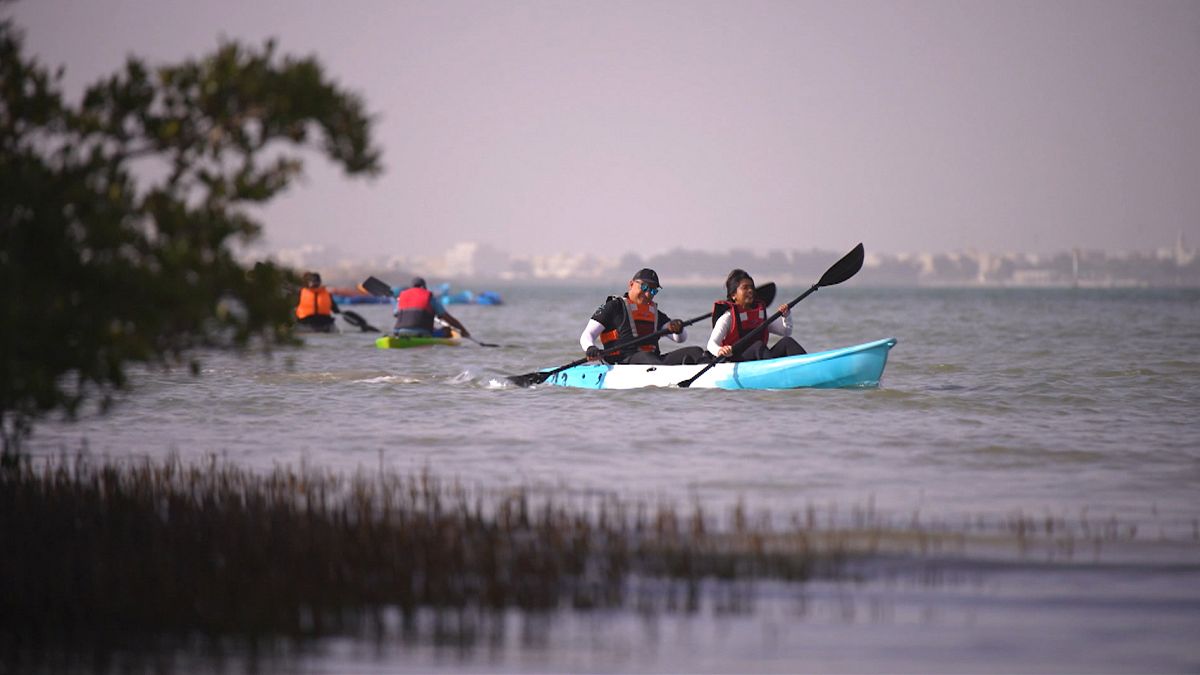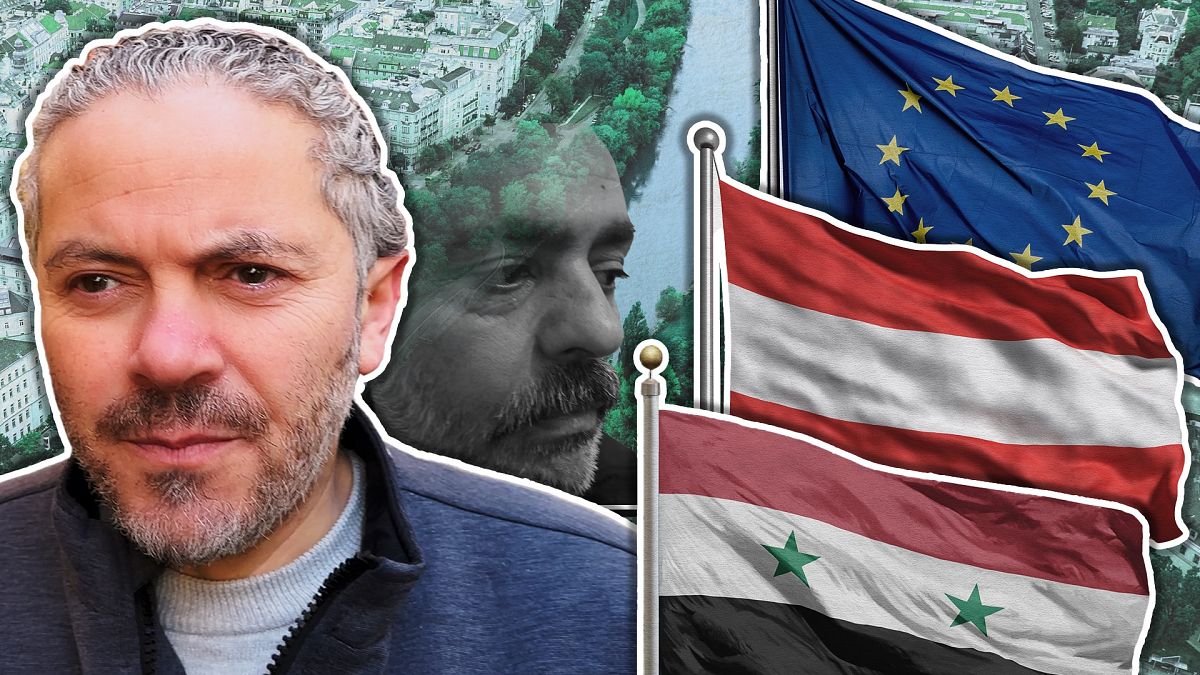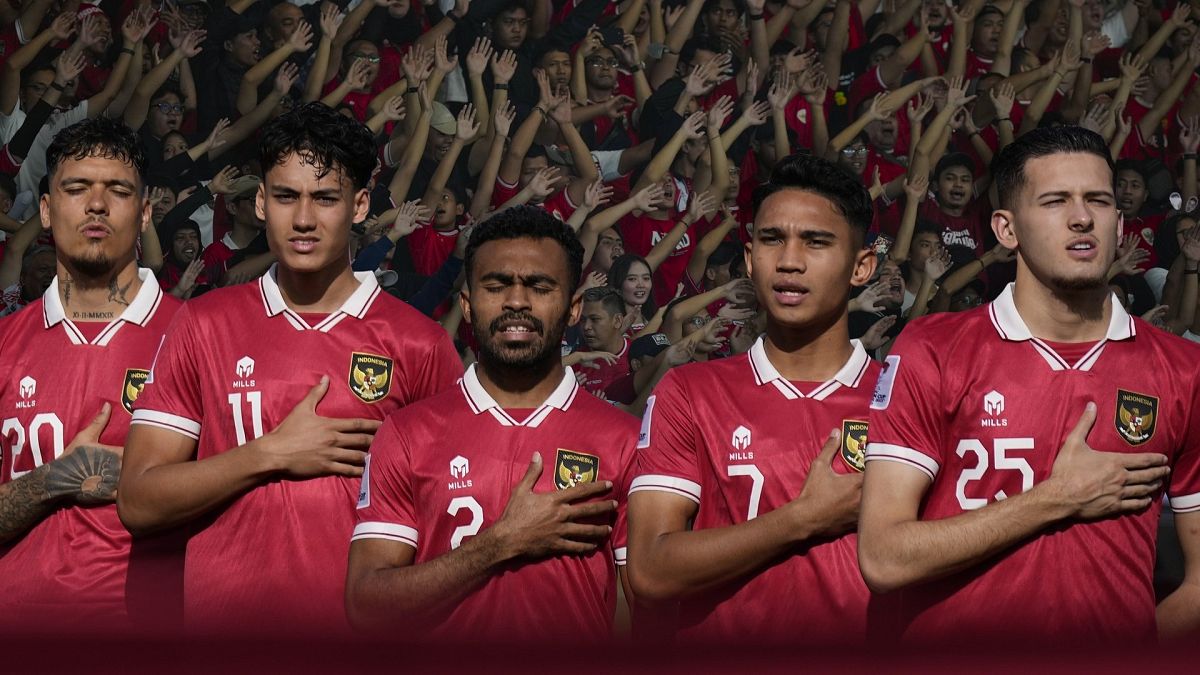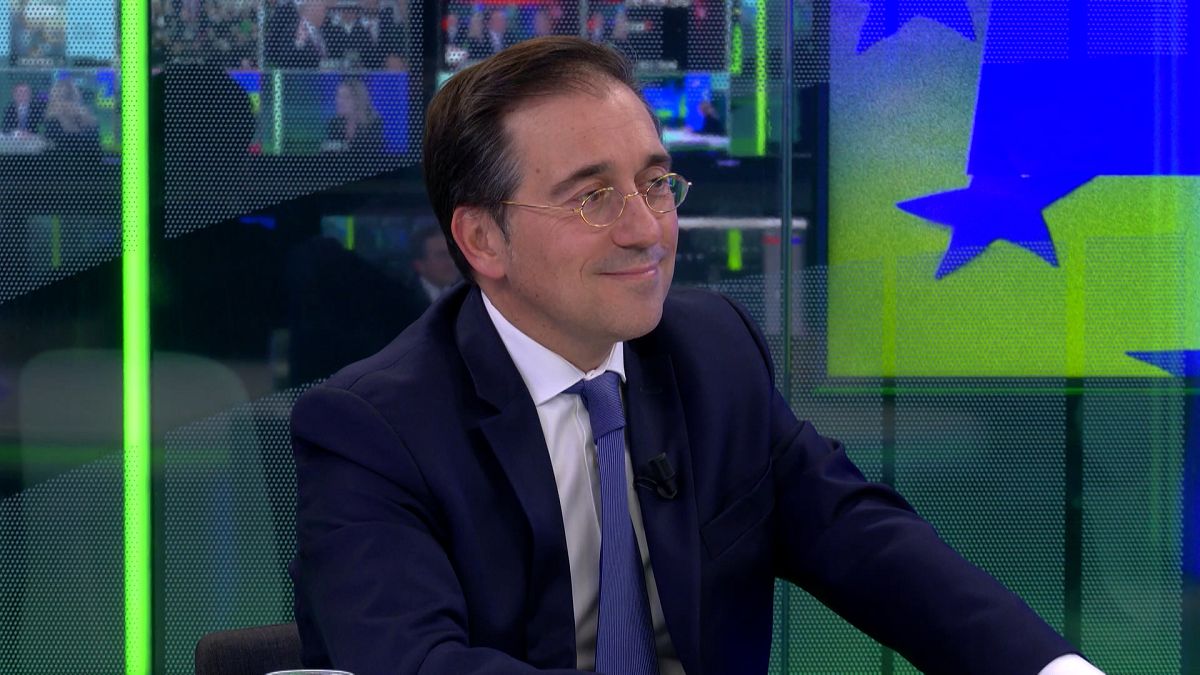How Qatar is putting sustainability at the heart of its economy
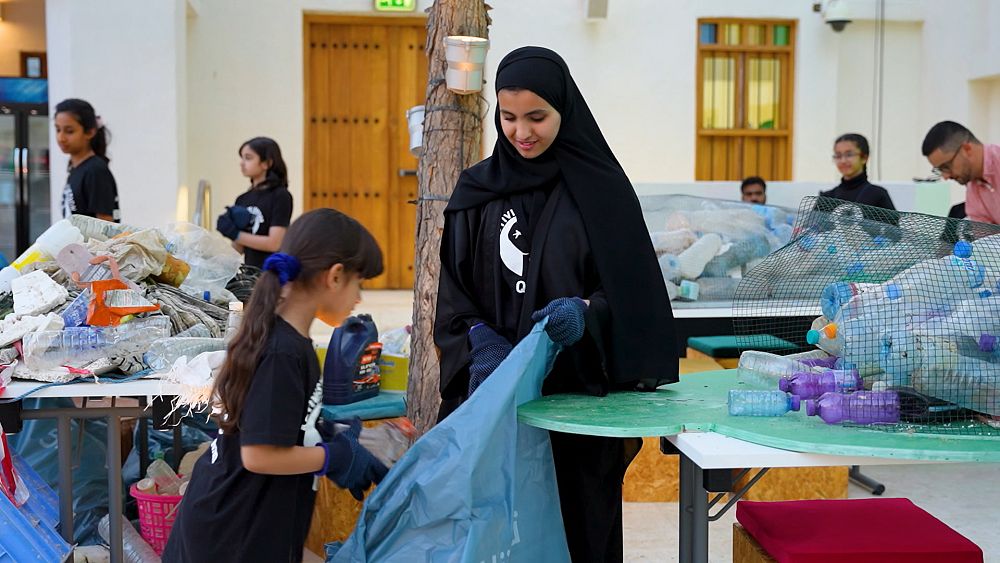
Discover the ways Qatar is making its future sustainable for generations to come, from a cutting-edge solar testing site to initiatives to raise environmental awareness.
Joining the fight against climate change and empowering future generations to take meaningful action: Qatar is putting sustainability at the forefront of its economic growth strategy. The initiatives include investing in solar power, establishing a sustainable supply of food and water and organising clean-up initiatives which preserve the country’s heritage and raise environmental awareness.
Perfecting Solar Power Technology
One of Qatar’s pledges is to cut greenhouse gas emissions by 24% and use 20% of its energy through solar power by 2030. But how exactly does a country with so much sun harness that power into energy? The Qatar Environment and Energy Research Institute is on the case.
QEERI’s outdoor solar testing facility is a sprawling site, and it’s where Dr Ben Figgis goes to work every day. He and his team look after all the research on solar energy QEERI is conducting at this site, to find the best ways to utilise the sun.
“These solar panels you’re seeing behind me,” he tells us while showing off a vast array of panels. “You simply put them in the sun and the silicon diodes, they start producing energy all by themselves. It’s really one of the miracles of material science. So, what we want to be doing is testing all the different technologies, because how they perform in one climate might be different from how they perform in another climate.
Qatar’s solar industry has grown rapidly in the last few years, boosted by billions of dollars in investment in renewable energy. These solar panels are part of a 35,000m2 facility, a test bed for what will power up Qatar’s economy into a cleaner, greener future.
Coping with the dust
The sun shines all year round in Qatar, with summer months getting up to 14 hours of daylight. But that doesn’t necessarily mean solar power comes easy.
“One of the biggest challenges we see for solar energy here in Qatar and in most desert regions is the dust,” says Figgis. “The measurements we’ve done show that if you don’t clean your solar panels here every month, they’re going to lose about 15% of their power just from the dust.”
That’s where these cleaning robots come in. Every couple of days, they give the panels a dusting. At the same time, data is collected for how good they are in keeping the solar panels working efficiently.
Stress testing
But even robots slip up sometimes and can scratch the panels while trying to clean them.
And that’s why QEERI’s indoor facility is just as important as its outdoor site. From pressure tests, to emulating extreme weather conditions, a lab puts solar panels through multiple trials to determine their durability and efficiency, and ultimately helps put them up on the market.
Dr Juan Lopez-Garcia leads QEERI’s Research Unit.
“One of our projects is this study of the effect of this abrasion, this scratching on the efficiency,” he tells us. “The main thing affected by these scratches is the light transmitted by the glass. You have a glass, and if there’s a scratch this can diffuse and scatter the light so this can have an impact on the efficiency because you are reducing the light.”
With QEERI’s wealth of data from both labs, Qatar’s solar-powered future looks bright.
Mapping out a sustainable future
Qatar Foundation’s policy research and advocacy centre, Earthna, was launched just last year, but it’s already made strides in the world of sustainability and environmental research. Its role is to map out Qatar’s sustainable future, and it got the ball rolling with the first ever Earthna summit, as Executive Director Dr Gonzalo Castro de la Mata explains.
“It was a wonderful first event,” he says. “We call it the Earthna Summit and it’s the first time we have had a meeting regarding sustainability for hot and arid environments. The importance is that sustainability for these types of climates means something very different. These are not tropical countries. These are not temperate countries. We don’t have forests and we don’t have water. So, the impacts of climate change are going to be very severe. But also, these countries are part of the solution because many of them are producers of hydrocarbons, which are part of an energy transition that we need to get to the targets of the Paris Agreement.”
Using technology to guarantee food security
Two big issues surrounding sustainable development are food security and water scarcity, both of which Qatar has managed successfully. What can other countries in hot and arid regions learn from Qatar’s policies?
“Well, food security is a huge challenge,” says Dr Castro de la Mata. “And of course, if you don’t have water, it’s even more difficult. Qatar has introduced technology to enhance its own reliance on its own food production, and there are many lessons that can be exported to other countries. But the solutions have to be targeted to each ecosystem and to each type of land. I think that in this sense, being able to… food security is not just having your own… growing your own food, but actually being able to rely on this on the supply from other countries. So, having commercial routes and the ability to trade is also very important for food security.”
In recent years, we’ve seen a growing number of youth being empowered to take action on the climate crisis. What are some of the ways Earthna is helping to amplify their voices?
“Well, during the summit, we had a couple of sessions with youth, and we heard their voices,” says Dr Castro de la Mata. “And they were very adamant about how the planet they want to inherit and coming up with their own solutions as well. So, youth are definitely part of the solution. Youth keeps the pressure up and I think it is very important for the current generation, the generation that is leading the world, to hear those voices.
Raising environmental awareness
The Doha Environmental Actions Project, or better known as DEAP, is making sure Qatar’s beaches and heritage sites stay clean and in good condition for generations to come. And volunteers are taking a lead role in raising environmental awareness in the country.
More than 100 volunteers recently took part in a clean-up on the beautiful beach of the Al Zubarah archaeological site.
But these 100 plus volunteers are not here for some fun in the sun. They’re here to work, get their hands dirty and clean up the beach.
“We’ve been doing this for 5–6 years,” says Jose Saucedo, Director of the Doha Environmental Actions Project. “And throughout that time we’ve mobilized 11,000 volunteers, the majority of them students. Today you can see we have university students, we have elementary school students here, who are joining us, families, companies. Everyone is part of this big movement that we created through the years.”
DEAP says plastic pollution is a major global concern. Every year, 11 million tons of plastic waste enter the ocean. The hope is that every single beach clean-up will increase environmental awareness in Qatar. That’s why the local organisation urges volunteers to leave nothing behind but footprints.
“We’ve collected 180,000 kilos of trash,” says Saucedo. “We’ve removed that much trash from nature in Qatar. From the mangroves, from the road, the beach, from the heritage sites.”
It takes plenty of people power, so every pair of hands helps. Athba Al Bassam brought her daughter along to show the difference they can make together.
“Today it’s windy but we want to be here to help the environment and to clean the beach at Al Zubarah,” she says.
“It’s very easy for people to understand once they are on a site doing a clean-up, that the challenge that we face of plastic pollution and littering, it is real,” says Saucedo. “And it’s much easier to have a conversation after you have witnessed how the place looked, how we left it than if I wanted to convince you of how bad that is without you having that context.”
Turning trash into art
One way to get people thinking about change is through art. Some of the bottles collected from previous clean-ups made their way to the recently held Doha Learning Days.
“We have a bunch of items that have been collected on the beaches surrounding Qatar,” says Elizabeth Kennedy, Assistant Principal at Qatar Academy Doha. “And our students are going to activate to do a collective art piece. They’re going to do a dugong as well as a turtle.
She says the animal-inspired artwork is intentional: “Our lands are being damaged, and this has an impact not only on the animals of Qatar: we have beautiful whale sharks that aggregate here, we have our beautiful dugongs as well as our sea turtles that nest. And sometimes when they see plastic bags that are floating in the water, they mistake them for jellyfish. And I think we have a real duty to take action and make sure that we leave our Earth a better place.”
Taking a stand on single-use plastics
That message was heard loud and clear by the students. ‘Activists in Action’ was started by a group of Grade 5 students who wanted to ban single-use plastics in Qatar, a stand which has since been embraced by the entire school.
“From the research we’ve done, banning plastic bags is a very huge step in committing to a healthy environment,” says Sara Aldosari, a Grade 6 student at the academy. “Because if you want to have a healthy environment, you can’t have it while plastic is going on and using plastic for 12 minutes and then throwing it away after 12 minutes but then it stays on the planet for way more than how much you use it. So, it’s not fair to other people or even to animals.”
Back at Al Zubarah, Dr Ferhan Sakal, the Head of Excavation at Qatar Museums, is a regular when it comes to beach clean-ups and hopes to see even more new faces next time.
“This is a very good initiative that can be developed in Qatar further,” he says. “We reached a very nice target that is periodically running clean-ups and that helps the heritage sites to be cleaned but also raising environmental awareness in the country to the global problem. It’s not a Qatari problem, it’s a global problem that we need to solve.
Source: Euro News


